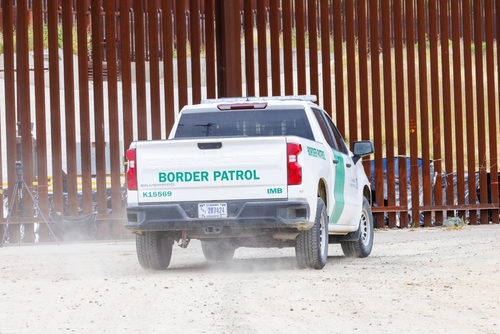
Hezbollah Member Arrested At US Border
A Lebanese migrant, Basel Bassel Ebbadi, was detained by the U.S. Border Patrol on March 9 near El Paso, Texas. The 22-year-old illegal immigrant confessed during interrogation that he is a member of Hezbollah, an Iran-backed terror group designated by the U.S. State Department as a foreign terrorist organization since 1997.
Ebbadi’s declaration during his custody that he aimed to travel to New York to “make a bomb” has sent shockwaves through the law enforcement community. According to a Border Patrol document, the Lebanese national disclosed his past as an active participant in Hezbollah, where he underwent seven years of training focused on jihad and the elimination of non-Muslim individuals.
Lebanese illegal immigrant caught at US border admits he's Hezbollah member planning to go to New York to 'make a bomb': Report https://t.co/Tfm2YiOsuK
— BlazeTV (@BlazeTV) March 18, 2024
Ebbadi previously admitted to U.S. Immigration and Customs Enforcement officers that he used false identification throughout his travels across multiple countries. That statement came during the investigation of an alleged robbery in Costa Rica.
Reports indicate that, so far in fiscal year 2024, 59 individuals from the terror watchlist have been apprehended at U.S. borders, marking a significant increase from prior years. This surge coincides with record levels of illegal border crossings, challenging the current administration’s border management strategies.
In light of recent events, including Ebbadi’s arrest, there is a growing call among lawmakers and security experts for immediate reforms to address the vulnerabilities at the U.S. southern border. Ebbadi’s arrest serves as a stark reminder of the complex and varied threats facing the United States at its borders. It highlights the critical intersection of immigration policy and national security, where the stakes are undeniably high. The increasing number of terror-watchlisted individuals attempting to enter the U.S. illegally should be a wake-up call to policymakers and the public alike.
For the conservative community, this incident reinforces long-standing concerns about the permissiveness of current border policies and the potential for these gaps to be exploited by individuals with ties to terrorist organizations. It underscores the necessity of a secure border as a fundamental component of national security and public safety.
Moving forward, there must be a concerted effort to bridge the political divide and develop effective, forward-looking strategies to safeguard the nation’s borders. Strengthening vetting processes, enhancing technological surveillance, and ensuring the swift deportation of individuals posing a threat are essential. Only through a unified, bipartisan approach can the U.S. hope to address the multifaceted challenges presented by illegal immigration and the ever-present threat of terrorism.